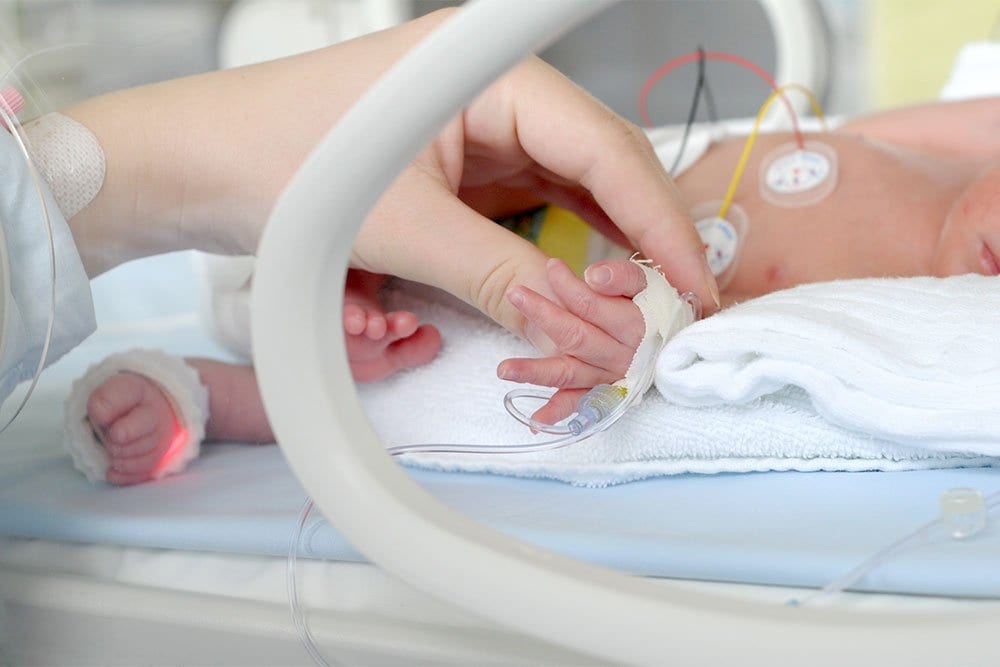Addressing PTSD in NICU Parents
 The experience that parents face when they have a child in the neonatal intensive care unit (NICU) is one that can last long after their baby is discharged. Years later, the beep of a monitor or the smell of hand rinse foam can still take them back to those precarious days in the NICU when they lived under the constant threat of losing their baby. These vivid memories can present as post-traumatic stress disorder (PTSD).
The experience that parents face when they have a child in the neonatal intensive care unit (NICU) is one that can last long after their baby is discharged. Years later, the beep of a monitor or the smell of hand rinse foam can still take them back to those precarious days in the NICU when they lived under the constant threat of losing their baby. These vivid memories can present as post-traumatic stress disorder (PTSD).
What is PSTD?
Post-traumatic stress disorder (PTSD) is a mental health condition that can develop after a person has experienced or witnessed a traumatic or terrifying event.
Stress for a parent who had a child in the NICU often does not stem from a single event — it is a continuous stream of events and new worries. Some research describes the NICU as a war zone with the alarms, noises and sickness happening around them.
How can NICU parents avoid developing PTSD?
Parents need to develop positive self-care and healthy coping skills. In addition, mothers need to care for their bodies, which are recovering from labor and delivery.
In addition, NICU staff monitor parents and support them through communication techniques like empathy, validation and respect. They also educate parents on their role in caring for their baby.
The NICU has a psychotherapist to support families throughout their NICU journey or to provide referral for outpatient resources.
A psychotherapist can assist in screening mothers and fathers at risk for behavioral health issues such as postpartum depression, adjustment disorder, acute stress disorder, PTSD and more. Psychotherapy can provide on-going support and easy access to a behavioral health professional.
For parents who had a child in the NICU, what are the symptoms of PSTD?
PTSD can cause various symptoms including:
- Recurrent, unwanted distressing memories of the traumatic event
- Nightmares
- Flashbacks or reliving the traumatic event
- Intense distress or physical reactions to memory triggers
- Negative changes in mood and thinking
- Changes in emotional reactions
Some of the signs and symptoms to meet criteria for PTSD can also be symptoms of other behavioral health disorders. For this reason, it is important to talk to a health care professional.
How are parents supported once they return home with their baby and don't have the NICU safety net?
While parents often look forward to their baby being discharged, often the stress will follow them home because of continued health problems and future unknowns. Some triggers may include follow-up appointments, fear of the baby becoming sick, fear of leaving the house with the baby and feelings of isolation and loneliness.
Since parents may focus on the care of their baby at the cost of their own physical and mental health, we encourage parents to find support from close family and friends. Parents also might benefit from psychotherapy and/or a support group to help address their stress level and mental health. Every parent will have a unique experience and response to the events in the NICU. If you feel you may have PTSD or post-partum depression, talk to your provider.